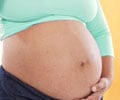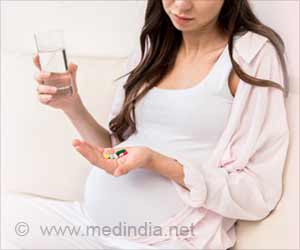Frozen embryo does not have significantly different chances of pregnancy when compared with fresh embryos. Fresh embryo transfer should be the gold standard in women without ovarian hyperstimulation risk.

‘Fresh embryo transfer has no significant differences in pregnancy when compared to frozen embryos. Fresh embryo transfer should be used in assisted reproduction in women without any apparent risk for hyperstimulation syndrome.’
Read More..




The researchers say the findings warrant caution in applying an indiscriminate 'freeze-all' strategy for all women undergoing assisted reproductive technology treatment, and that fresh embryo transfer should be used as the gold standard.Read More..
Elective freezing of embryos (a 'freeze-all' strategy) is becoming more common as pregnancy rates after frozen transfers approach those of fresh transfers.
A freeze-all strategy can also minimize the risk of ovarian hyper stimulation syndrome (a painful response to hormones used to stimulate egg development), but studies comparing the two strategies are lacking.
To help fill this evidence gap, a team of researchers set out to test whether a freeze-all strategy resulted in a higher pregnancy rate than a fresh transfer strategy.
Their findings are based on 460 women aged 18-39 years with regular menstrual cycles starting their first, second, or third treatment cycle of in vitro fertilization (IVF) or intra cytoplasmic sperm injection (ICSI) at fertility clinics at eight public hospitals in Denmark, Sweden, and Spain.
Advertisement
The freeze-all group (elective freezing of all embryos) received gonadotropin releasing hormone to trigger egg maturity, followed by a single frozen-thawed mature egg (blastocyst) transfer.
Advertisement
Women in the fresh transfer group with an excess number of mature follicles (fluid-filled sacs containing an egg) on the day of triggering had elective freezing of all embryos and transfer was delayed as a safety measure.
The results show that the pregnancy rate (defined as a detectable fetal heart beat after eight weeks of gestation) did not differ significantly between the freeze-all and fresh transfer groups (62 out of 223 or 27.8% v 68 out of 230 or 29.6%).
In addition, no significant difference was found in the live birth rate, with 61 out of 223 or 27.4% for the freeze-all group and 66 out of 230 or 28.7% for the fresh transfer group.
No significant differences between groups were observed for pregnancy loss, and none of the women had severe ovarian hyper stimulation syndrome.
The risks of complications did not differ between the two groups except for a higher average birth weight after frozen blastocyst transfer and an increased risk of pre-maturity after fresh blastocyst transfer.
Time to pregnancy was longer in the freeze-all group.
The researchers point to some study limitations that may have influenced their results, but they say "in women with regular menstrual cycles, a freeze-all strategy with gonadotropin releasing hormone agonist triggering did not result in higher ongoing pregnancy and live birth rates than a fresh transfer strategy."
What's more, "a safe fresh embryo transfer strategy can be applied to women with regular menstrual cycles with strict cancellation criteria for the fresh transfer if an excess number of mature follicles are present," they add.
"The findings warrant caution in the indiscriminate application of a freeze-all strategy when no apparent risk of ovarian hyperstimulation syndrome is present," they conclude.
Source-Eurekalert















